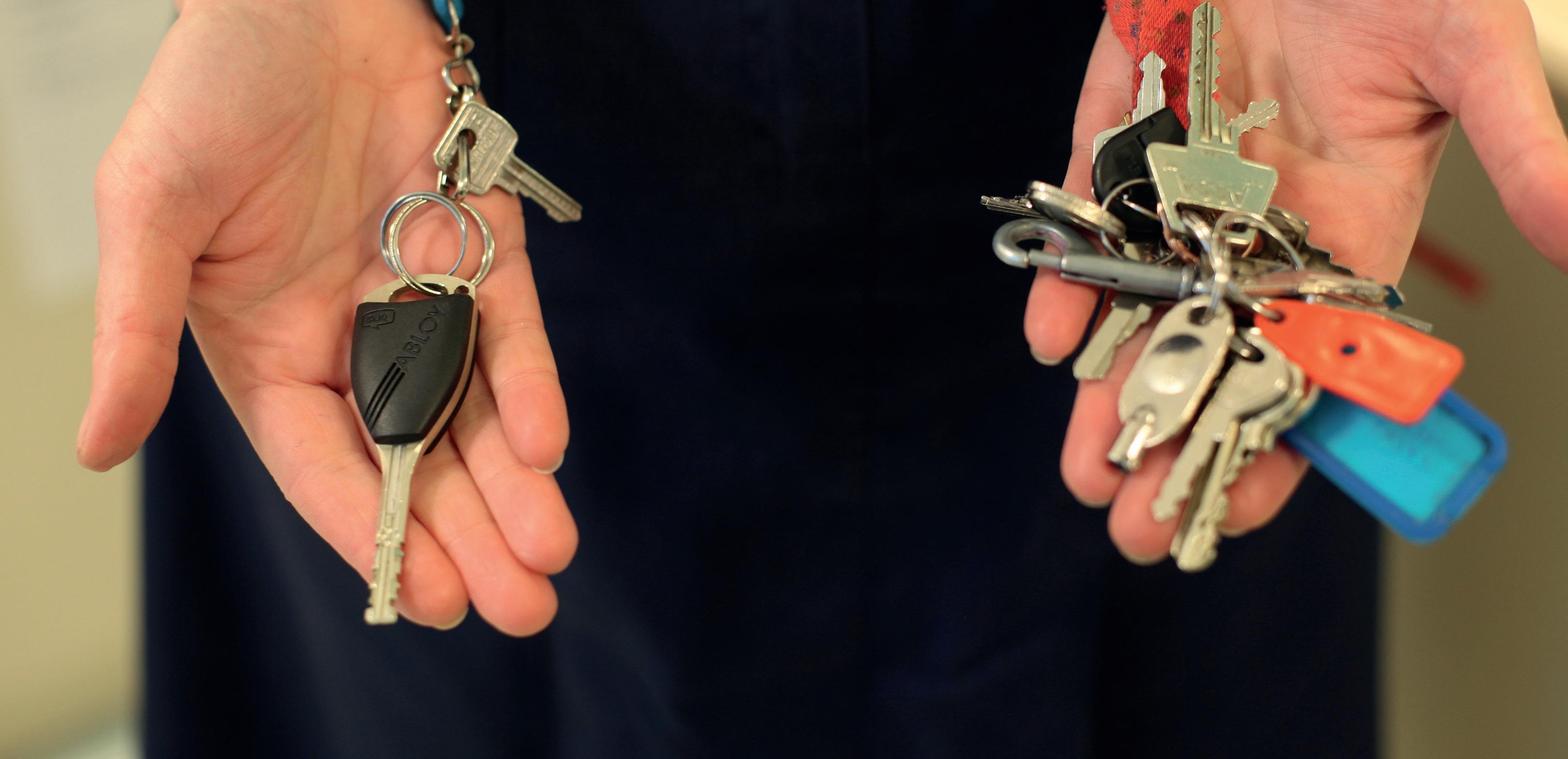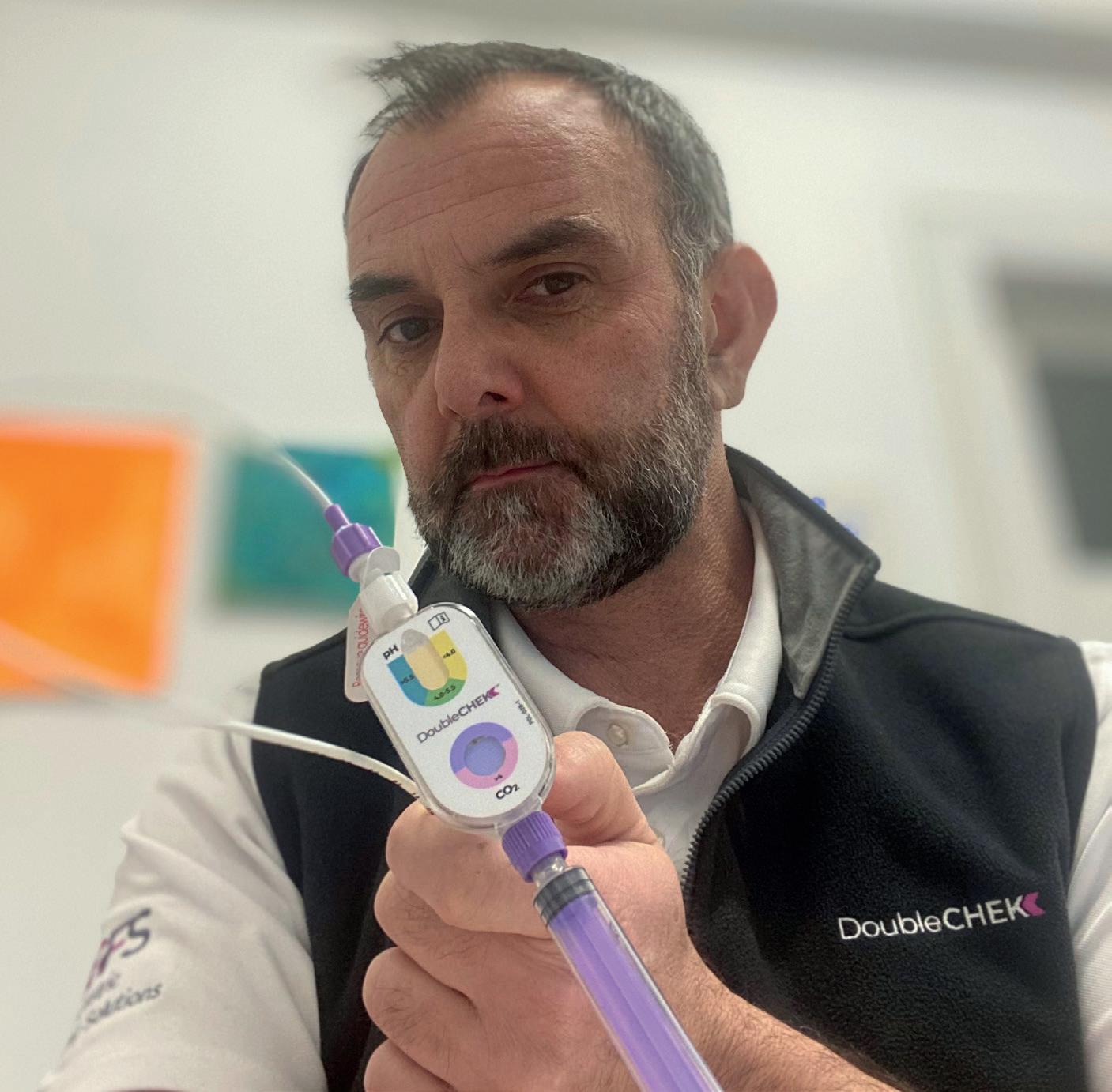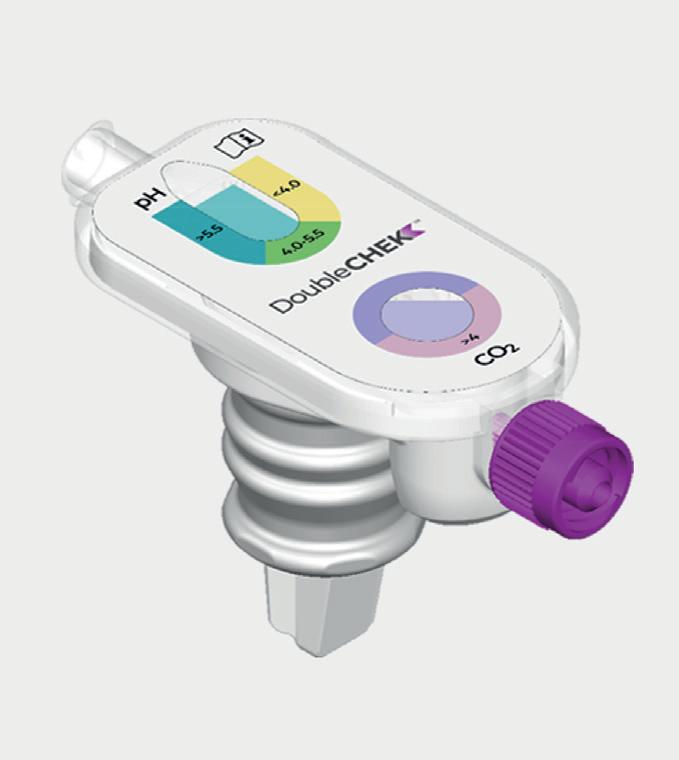
6 minute read
Innovative medicine management technology releases nursing time for patient care
Aaron Ballard-Ridley, Healthcare Sales Manager at Abloy UK, explains how innovative, practical security systems are helping to relieve pressure and streamline the NHS.
We’re incredibly proud of our National Health Service, but now more than ever the system is under immense pressure. NHS employees work incredibly long hours, and the operational systems in place that ensure patients receive the best possible care can only be streamlined so far.
Therefore, it stands to reason that technology is the next logical step to help increase capacity within the system, by increasing efficiency. For hospitals to invest in the latest technology, they must be shown clear benefits and a return on investment, because the NHS can’t afford to ‘gamble’ on a solution that might not succeed. Key security
When it comes to medicine management, a system must have a high level of security at its core, and traditional mechanical keys are no longer a suitable solution for healthcare. For example, drug cabinets naturally need to be secure, but there is always the risk with mechanical keys that they can be lost, stolen or copied.
Historically, a senior nurse would be in control of a key set, and nurses would need to request the keys to open high security areas and controlled drugs cabinets. But on busy wards the keys are often misplaced, which undermines efficiency – particularly in urgent situations when nurses require instant access. Over a period of time this detrimentally affects patient care, nursing efficiency and morale. To combat these issues, security within healthcare settings has evolved from a simple set of mechanical keys to an access control system which utilises key hierarchy. This allows individual users to have access to several areas with just one key. Each individual has their own access rights tailored to their needs, and management can have a higher level of authorisation.
Access rights and audit trails
Access rights can be revoked via the web management system with ease. Management can see audit trails that can be analysed to improve working practices further. For instance, you can measure when and where increased traffic occurs during a shift and will be able to plan for these peak times. Audit trails provide objective data with valuable
insight into how a ward is operating and senior nurses/pharmacists use it to save time investigating drug discrepancies. systems would bring the best efficiencies. That’s how we developed our own access control system PROTEC2 CLIQ.
It uses mechanical high security disc cylinders combined with highly encrypted electronic locking and identification. Power to the lock is provided by the CLIQ key, so no batteries or wires are required for either the lock or drug cabinet, making it a costeffective and convenient retrofit solution – even for applications such as mobile drug trolleys.

Estate management requires a different solution, so eCLIQ was developed. It offers the connectivity benefits and audit trail features but without the cylinder, delivering a further level of security for lower risk areas, such as plant rooms and storage cupboards.
The system allows for remote key management on locks and padlocks, and the ability to remove lost or stolen keys from the system increases the security of controlled drugs and saves costs on replacing lost keys and installing new cylinders.
It isn’t only wards that can benefit. Estate management can utilise an access control system, with contractors and maintenance staff granted access to areas within the estate. The timed access feature can also ensure access is revoked outside the allotted time to provide a high level of security.
The Abloy solution
The CLIQ range of solutions has been making waves in the healthcare sector for a number of years, with installations at Queen Elizabeth Hospital, North Lincs. & Goole NHS Trust, Spire Hospital Manchester all benefitting from the installation of CLIQ locking solutions. In one hospital where pre- and postinstallation results were measured, they calculated that over a year the time saved by CLIQ would be the equivalent of having an extra 24 nurses on duty every day across the Trust. This is due to the fact that nurses were spending an average of 30 minutes per shift looking for keys, which equated to 240 minutes lost on a ward every day.
What’s more, patient satisfaction has increased. In one instance, figures from an audit of patients who felt their painkillers were given promptly jumped from 79 to 92 per cent following the installation of CLIQ.
The technology has also been recognised by the Medilink West Midlands Medical & Healthcare Business Awards, taking top prize in the Delivering Innovation into Health and Care category. This recognises innovations adopted by the NHS which demonstrate an impact on efficiency, patient outcomes and system costs.
Ultimately, CLIQ encourages nurses to deliver more direct patient facing care, helping to relieve pressure and streamline the NHS.
Enteral access device says never to ‘never events’
Enteral Access Technologies (E.A.T.), has developed a device called DoubleCHEK which uses dual indicators, CO2 and pH, to prevent the misplacement of feeding tubes into the lungs.
The misplacement of a nasogastric tube into the lung is known as a ‘never event’ in the NHS. This means it is wholly preventable if current national guidance is followed properly, but it is still surprisingly common.
Existing solutions are either too costly or too big to be compatible with all tube sizes, have accuracy problems discerning lung placement, or only provide information after the tube has been fully inserted. DoubleCHEK combines CO2 and pH indicators with a proprietary valving system to help clinicians place tubes safely and quickly in any environment. The innovative enteral access device assists the clinicians who use it and benefits the patients who require it in their fight to survive life threatening conditions.
The Liverpool-based company recently secured £750,000 through a mix of private investment and matched funding from the British Business Bank’s Future Fund. This funding will enable E.A.T. to manufacture the device in the UK and initiate commercialisation in Q2 of 2021. The investment will also be used to obtain FDA approval ahead of the US expansion being led by the E.A.T. team in Chicago, Illinois.
Previously known as NasoGastric Feeding Solutions Ltd (NGFS), the company changed its name to Enteral Access Technologies in March 2021. The name change, which was part of an overall rebrand, was designed to more accurately reflect the company’s emphasis on technological progress and its portfolio of enteral access focused products.

“Our new company name better reflects what we do and our vision for the future. Our focus is on developing new technologies to improve enteral access, and we wanted our brand to reflect that.”
George Gallagher CEO Enteral Access Technologies











